As an amateur scholar and die-hard enthusiast of everything to do with Alice in Wonderland, I have launched a Podcast that takes on Alice’s everlasting influence on pop culture. As an author that draws on Lewis Carroll’s iconic masterpiece for my Looking Glass Wars universe, I’m well acquainted with the process of dipping into Wonderland for inspiration. The journey has brought me into contact with a fantastic community of artists and creators from all walks of life—and this podcast will be the platform where we come together to answer the fascinating question: “What is it about Alice?”
For this week’s conversation it is my pleasure to have David Sexton join me. Read on to explore a sampling of our conversation and check out the series on your favorite podcasting platform to listen to the full interview.
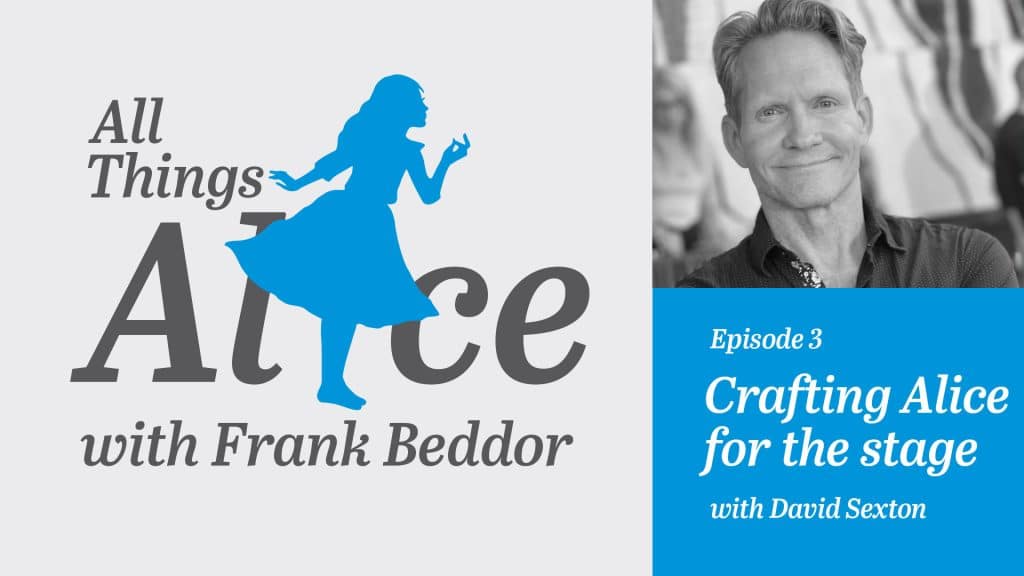
FB:
I’m so excited to learn about you and where some of the creativity came from. How you take my reimagining and reimagine it again. I really couldn’t keep up. There is stuff that you created and artwork that you did that I was like, “When did he do that? Why didn’t we finish that project?”
DS:
“Why did he do that?”-- that’s a valid question!
FB:
Right, remember you did that “Kingdom of Cards” which was going to be a game idea and you pitched it to me, then you did all these characters, and you were doing different spellings of the clubs and you had spelled Alyss as “Alyza.” I was like I can’t keep up with him. He’s changing everything much too fast. You have the art, you have the world creation, the magic, some of the science. We’ve talked about musicals; you worked on the musical with me. Take us back to David the kid and what was going on in that mind of yours. Where did you put all the energy?

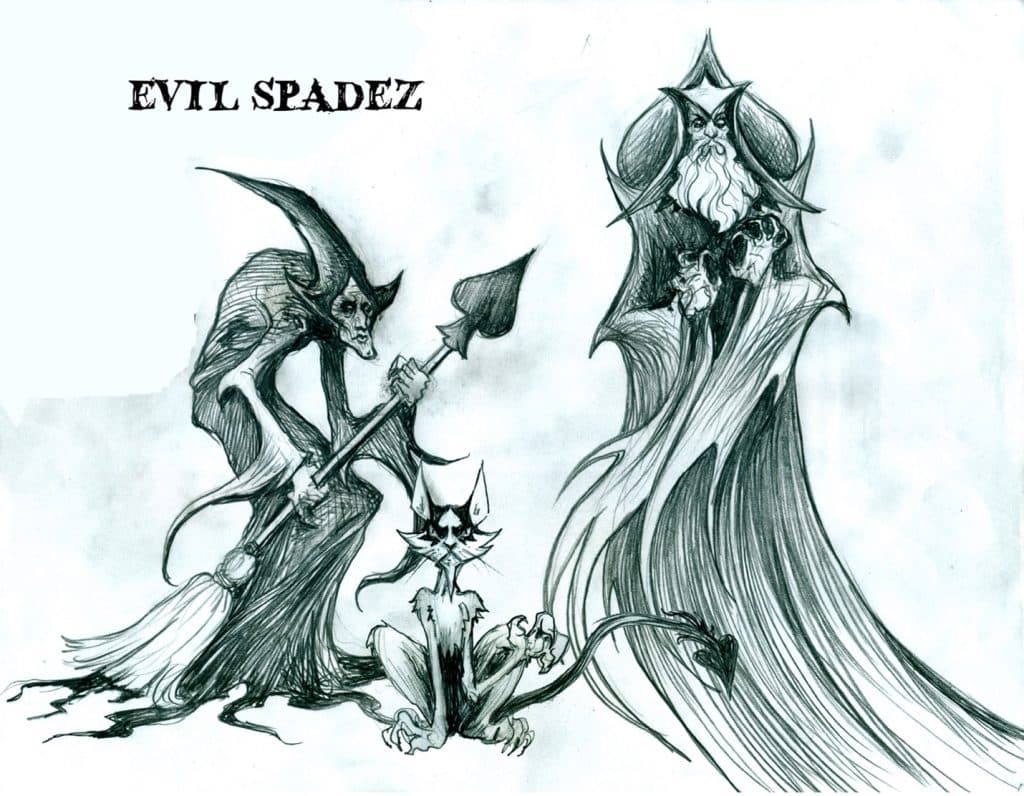
DS:
I’m much like I am today. I really haven’t changed much. We moved around a lot when I was a kid. My dad had a job as a turnaround man. He would go into a failing business and restructure it and fire the deadwood. So, we would move every year of my life. I can remember up until I was in high school, we moved every year.
FB:
Wait a second, that’s a really particular financial mind that your dad had but your mind is just firing creatively constantly.
DS:
My reality was constantly changing, so the only constant was my imagination. I learned to tell myself my own stories and to create characters in my head and do all that stuff when I was a kid. That was consistent, imagination was foundational and felt like a safe place for me. You know? My internal world was comforting and so I invested in that. I feel like I still do, I still get a lot of joy from inner journeys.
FB:
Did we meet at a Comic-Con?
DS:
Yes, I had read The Looking Glass Wars, I’ve always loved takes on traditional fantasy. I love variations on Wizard of Oz. I’m always curious to see someone deconstruct an archetypal fairy tale or fantasy. I was drawn to Looking Glass Wars and I read it and I thought it was amazing and I was actually at Comic-Con because Marvel was doing my miniseries, Mystic Arcana.
FB:
That’s right.
DS:
I was going around sharing the book with everybody, introducing myself and I came to your booth, and I was like, “Oh my gosh, Looking Glass Wars! Is Frank Beddor here?” And you, who I was talking to, sort of opened your arms like a magician revealing your trick and you were like, “I, am Frank Beddor.”
FB:
Oh, come on.
DS:
That’s how I remember it. I think we immediately connected on the “explorers in imagination” wavelength. That was the beginning of our friendship.
FB:
In going back and seeing some of these sketches you’ve done over the years—I rediscovered your “Alyza”, she has super cool contemporary boots, she’s got a wicked haircut, she’s got bangs. She had a real fantasy, goth, 90’s vibe.
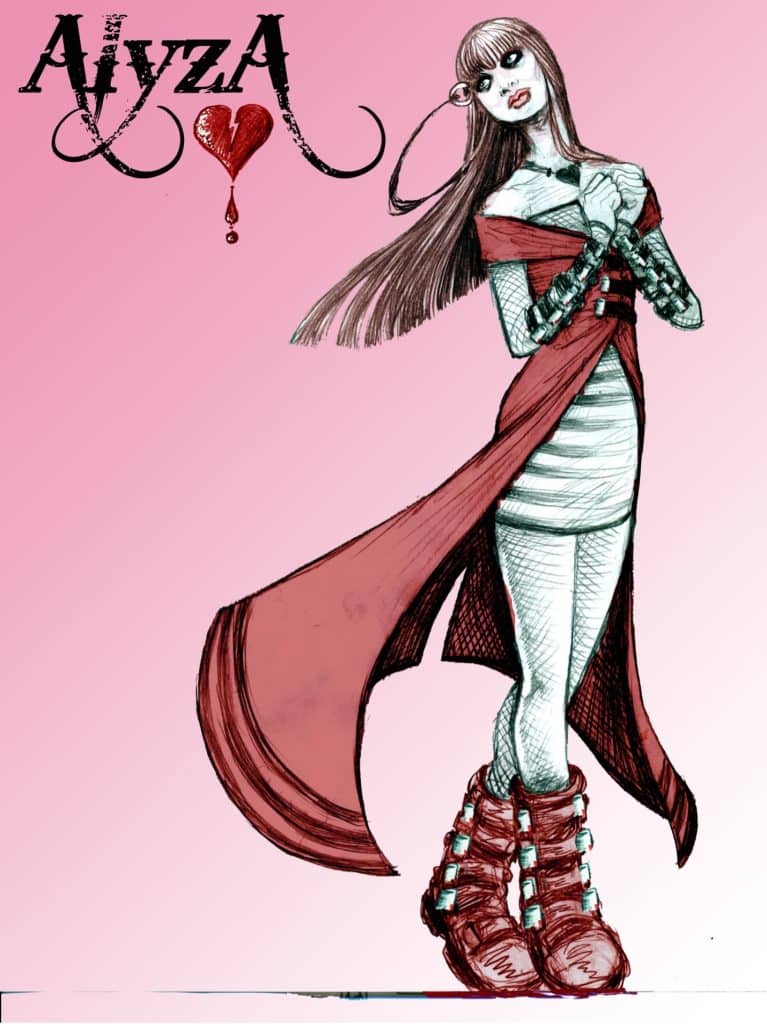
DS:
Oh yes, I remember this now. I think I was mashing up Wizard of Oz and Alice in Wonderland. Somehow, she was connecting to Oz and Alice.
FB:
We should actually do that though.
DS:
I would love that.
FB:
We should do a story of those two. I mean the cross-pollination of that.
DS:
Exactly, when we were talking about “when did I discover Alice”, I remember Wizard of Oz and Alice coming into my conciseness at the same time. The idea of these tenacious female protagonists, thrust into these completely alien environments but refusing to let it overwhelm them.
FB:
Refusing to surrender, right.
FB:
What was your first experience with Alice in Wonderland and with the Wizard of Oz? Do you recall?
DS:
Oh gosh, I don’t know that I remember. I’m a visual person, I love reading and everything, but I do remember Alice's illustrations and being intrigued by that. I’m sure my first encounter with the Wizard of Oz is probably the movie.
FB:
Yeah, me too.
DS:
I don’t know if I remember the Disney animated Alice movie. I actually sort of remember the first time I saw it I was like, “I don’t like it.” I think I already had Alice in my head, and I didn’t think it succeeded. But Wizard of Oz definitely was the stuff, you know.
FB:
That movie I saw when I was young. I saw the movie when I was really young, and I remember being terrified of those monkeys. I created the Seekers in the Looking Glass Wars because I wanted to scare some other kid.
DS:
Yeah, and your books have some definite scariness in them. One of my favorite things that I think of as a thing I learned from Frank Beddor. You open the book in the most harrowing, hair-raising, dangerous moment possible. It’s always like the first chapter. Then you flash back.
FB:
Because I really wanted those thrills that I had from the monkeys in the Wizard of Oz. That was so creepy.
DS:
I think the challenge of Alice, the original books, is that it’s so episodic. The encounters that she has don’t seem to build on each other. They almost interchange. You can move them around in different orders. I think that’s always the challenge of people adapting the book is that you have to create a build to the adventures and the episode. Obviously, you completely reimagined it but it’s what’s wrong with the Disney movie. There’s no climb, it doesn't build.
FB:
That’s what I really tried to do. I tried to take all the books I read as a kid that had the jeopardy and all the stakes and all the obstacles and give Alice obstacles the whole way that we could see her sorting out. That would be the page-turner or cliffhangers at the end of each chapter.
DS:
Also, Hatter Madigan was sort of the breakout character. He was like James Bond with a hat. He’s the action-adventure guy. So, for boys, I think he’s sort of the draw into the story in a lot of ways. It’s that action-adventure side of it. I think Alice is a very relatable protagonist.
FB:
Yeah, she was my favorite character to write because she had that big story arc. Similar to Dorothy.
DS:
There’s something so compelling and interesting about those stories, Alice and Oz, and they do feel like they weaved together in some way.
FB:
Speaking of weaved-- let's just talk about caterpillar thread tech. I just want to lay out the groundwork. Because I’ve been working on The Looking Glass Wars since 2000, quite frankly I get burned out. So, I called you saying, "I got a new book. Hatter Madigan Ghost in the HATBOX. I need some magic, bring me some magic. What do you think?" And you always delivered in spades, excuse the pun.
DS:
I will say that I have always enjoyed collaborating with you and that you are a muse to me. What you’re doing always stimulates thoughts and things inside of me and when I read that book and you were sort of like, “I feel like it needs a little more meh.” So, I was like “oh what if…”
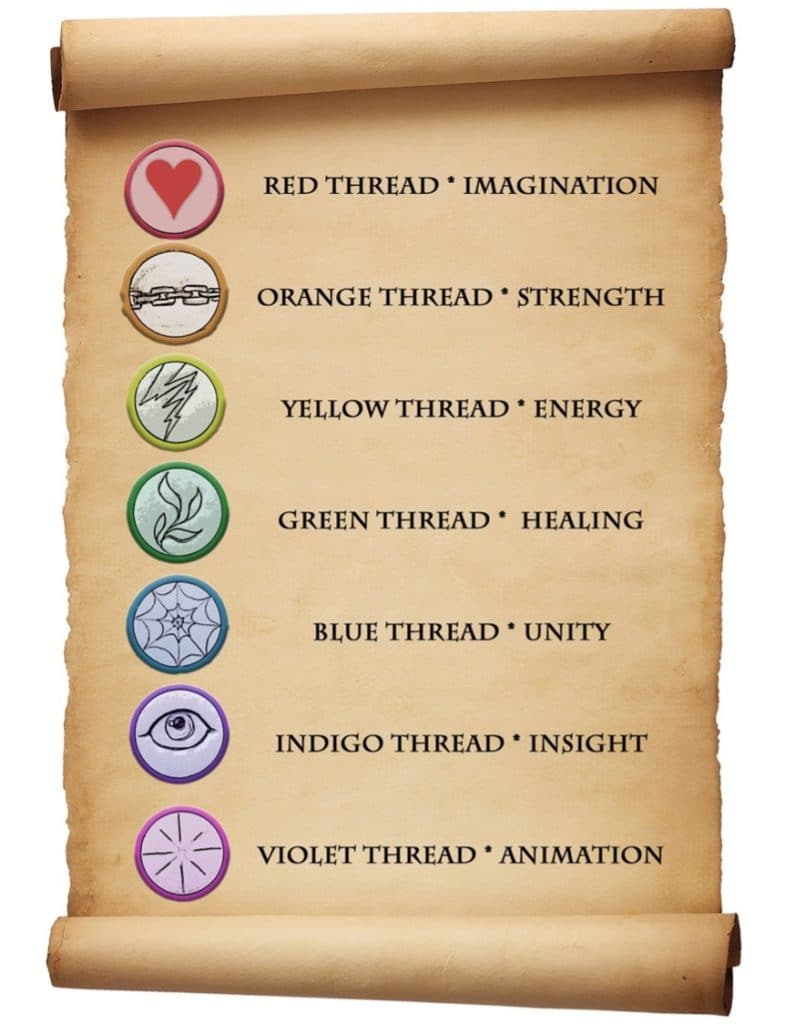
FB:
A little bit more showbiz
DS:
A bit more pizazz and then we just sort of just wove this idea of thread tech through various parts of it. And you were like “oh this is super cool” and then started incorporating it into the narrative. It was definitely a thing that we did together.
FB:
Where did those ideas come from? Is that just well-honed imagination and or were you riffing off of another idea that you might have had?

DS:
I love magical systems. When I went and pitched my idea to Marvel, I said, “Your science fiction entities are doing fantastically well, but your magic-oriented properties are failing.” Dr. Strange had been started and canceled, started and canceled dozens of times and no one could seem to make that side of the Marvel universe succeed. I said to them “It’s because you have no rules.” Dr. Strange is Deus ex machina every time he arrives. Whatever it is, it’s always the solution. What really good fantasy or magic writers do is they create rules, then subvert them in a clever way. I mean J.K. Rowling, Harry Potter is a great example. She sets up very strict rules about how it works. Then she messes with you and takes you in unexpected ways. But I said, “If there’s no rules, there’s no risk.”
FB:
And there’s no suspension of disbelief.
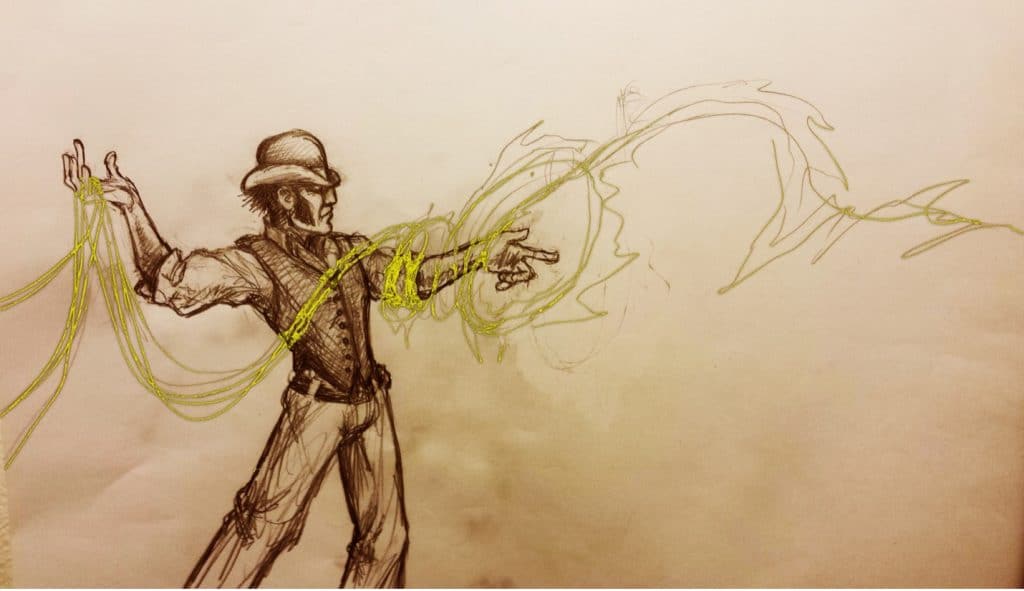
DS:
Exactly, because you really need a lot of parameters to suspend. When I said that to Marvel I was like, “we need to break down how magic works.” So, we created a series and ways of systems for magic in the Marvel universe. That’s something that always floats around in my head, “what are the rules for magic?” And you had dark and light imagination as the bedrock for the imagination rules. So, I thought okay so it’s about light, then you break the spectrum of light into colors and already you had the blue caterpillar, there are already colors connected with caterpillars. So, then what the silk does is it breaks down the power of imagination into a spectrum. What are the components of a spectrum? What do these different colors stand for? What would be important if Alice imagines a tree into being, well what are the different things that make that actually happen? It has to have strength, it has to have durability, it has to have energy. These various things that make imagination into reality. That’s sort of how I worked backward from that.
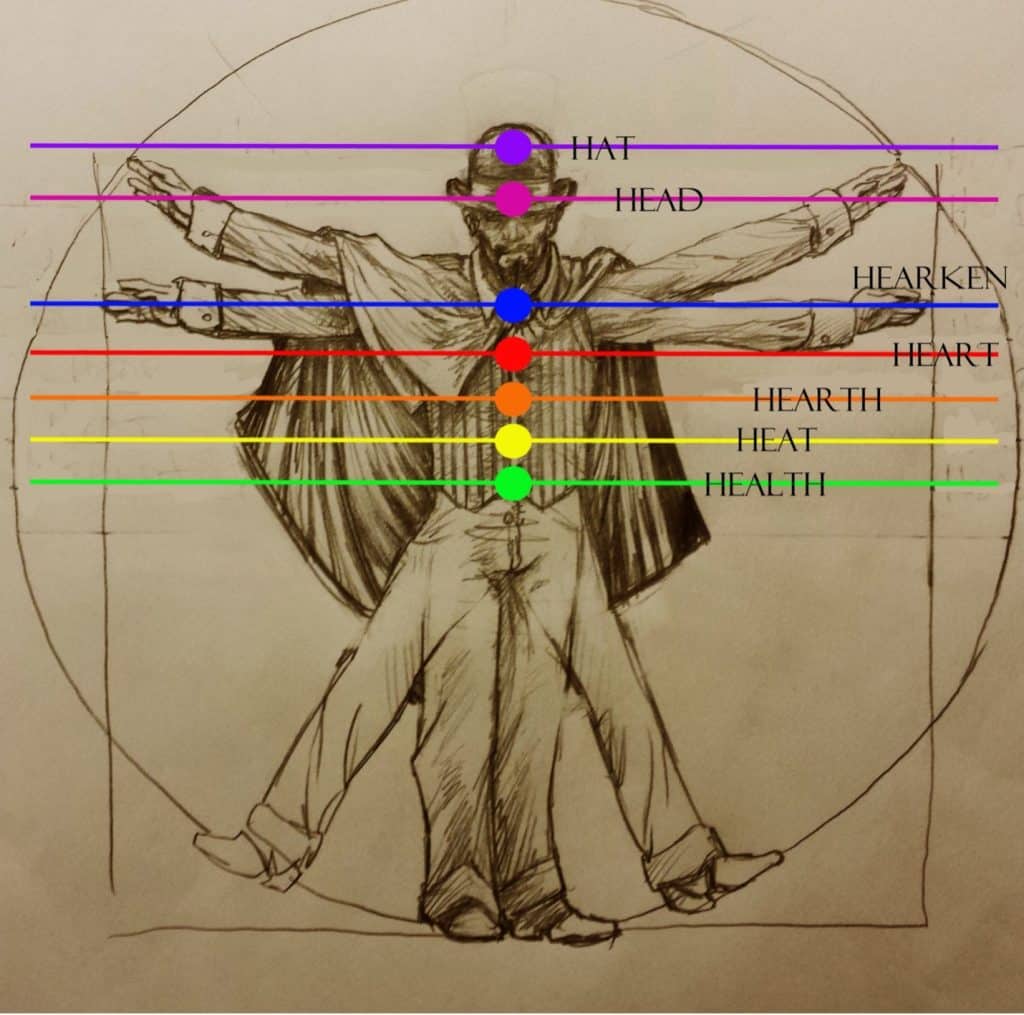
FB:
Well, you did it fantastic and you made it very simple because you used the colors. Green was for restorative and yellow was for energy and orange was for strength and blue was for imagination. You had this very simple and understandable color chart. But then, to do what you said to subvert the creation was you said, “What if you twist and bind the separate threads?”
DS:
That was like the next level of it.
FB:
Then you used all these terms. It really did create a magic system that was easy for me to take and run with and imbue the characters.
DS:
You had created your own magic system that was the tenant of Looking Glass Wars. With the dark and light imagination. How those affected each other and what the rules were for those. I married that. Which I think is the best collaboration, right? I didn’t try to throw something onto yours, I took what you did, and I said, “oh what if we moved this around a little bit and changed it a little bit”, enough that it makes sense and feels like that new rule system emerged from your rule system.
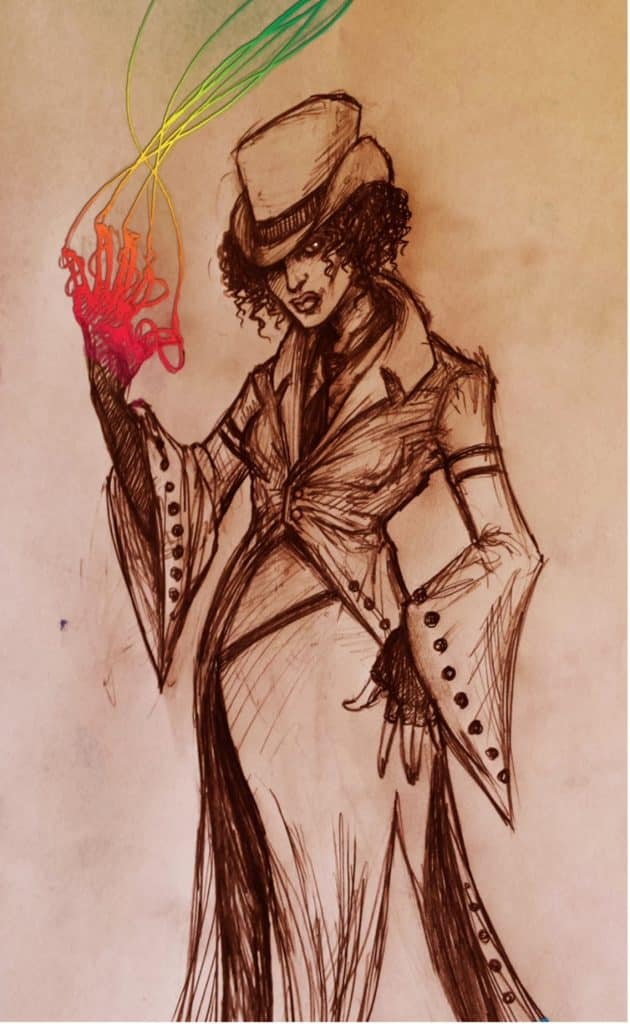
FB:
You really showed off your stuff. And it wasn’t just the thread, I remember I called you and said, “I need all the cool hats in the world so I can give my characters names based on hats.”
DS:
Actually, what you said was, “I need more variety in terms of the kinds of people that are populating the Millinery. It seems like it’s all the same, it’s a very vanilla ethnicity.” I was like, “Let's look at hats all over the world, and that gives us a whole different feel of what that character is.” If they’re named whatever from the different hats, and so, that was super fun exploring all that. Then it’s what does that character look like?
FB:
I haven’t done a lot of character sketches on that but you’re right, that would be the lead idea. Wherever that hat is from that’s where the person is from or their backstory. That was amazing. Have you seen any Alice’s Adventures in Wonderland musicals? I know we once spoke of the musical; Wonderland I think it was called.
DS:
Yeah, Frank Wildhorn.
FB:
Yeah, you don’t see a lot of attempts. You see a lot of people doing small theaters or local theaters and they do a play version of it. But a big musical a la Wicked.
DS:
It’s true, I think we can safely say there’s never been a successful version of it a la Wicked. I saw Frank Wildhorn’s, Wonderland. I feel like the less said the better. It didn’t succeed for some of the reasons were talking about. Amazing cast, super talented, music wasn’t terrible. It wasn’t the best. There were moments but he didn’t crack that thing. It never felt like there was a build of tension, there weren’t stakes. It was Alice meets this thing; they do a song.
FB:
Yeah, so episodic again, not going to work.
DS:
Episodic, it’s a trap that people can fall into when they’re adopting that material because the base material is so structured that way.
FB:
How old was Alice in the musical I’m curious?
DS:
She was an adult; I think she was the adult daughter of the original Alice was the conceit of it. So, she was cynical, and I feel like that is what they were trying to get at.
FB:
There also hadn’t been a Wizard of Oz that was successful. There was The Wiz but nothing successful until Gregory Maguire reinvented it because he made it about the stakes between two sisters.
DS:
I would say that actually The Wiz is very successful and Wicked has been successful. I would say there are two huge Broadway hits that were based on the Wizard of Oz material and there’s never been one for Alice in Wonderland. Which is arguably as large an IP and ripe in imagination things. They’re waiting Frank. You can’t stop you have to keep pushing it.
FB:
Which character from Alice’s Adventures in Wonderland, who are you? Who would you pick?
DS:
I feel like I’m an Alice with a Queen of Hearts rising.
FB:
Oh, I think so too, I think a lot of Queen of Hearts rising. You don’t have the evil streak.
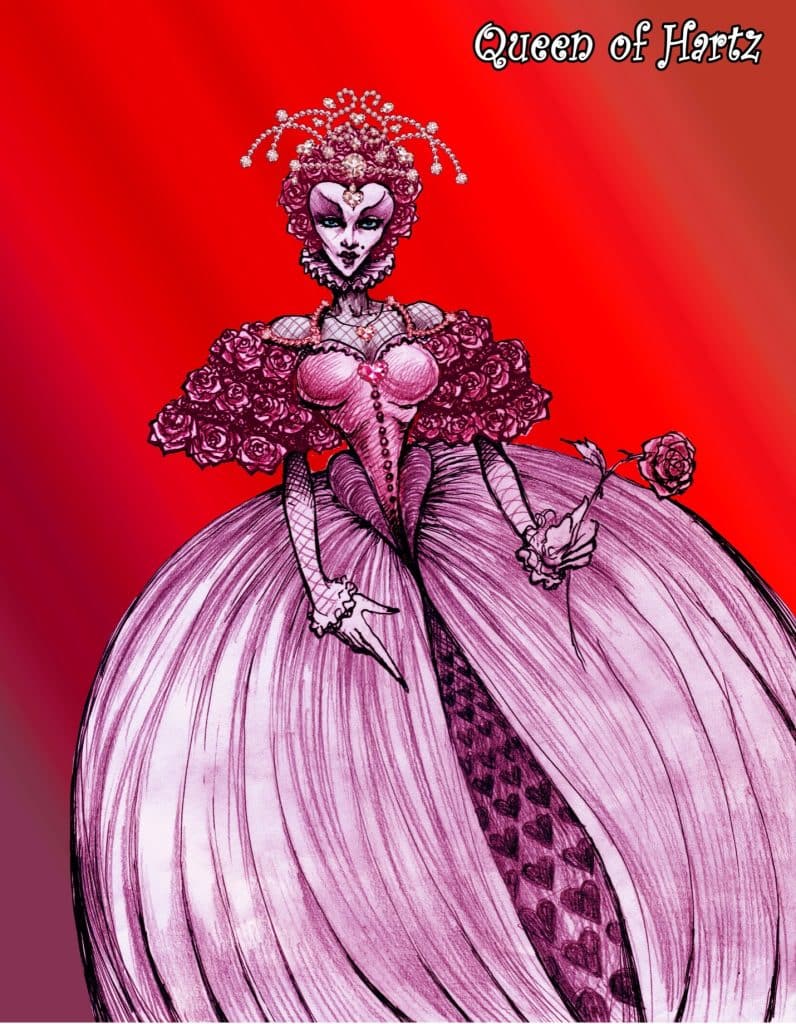
DS:
I’m bossy, but I’ll say that Queen of Hearts and Alice both share a clarity of purpose and a tenaciousness, and I feel like Alice is more of the inquisitive side and the Queen of Hearts is sort of the more forceful side but both of them are inside of me.
FB:
What about the Looking Glass Wars? Which character? I think it’s not a character, it’s a thing. The Heart Crystal, the source of imagination. You are the embodiment of the Heart Crystal, that’s Dave Saxton.
DS:
I’m so touched that’s beautiful.
FB:
What is it about Alice and her staying power in pop culture? It’s a two-parter because it’s that and then, what in pop culture has moved you that is Alice-related that people have been inspired? Whether it's in music or a garden or film or T.V. Does anything come to mind?
DS:
Well definitely as we’ve been saying, it’s this quality of someone who refuses to be lost or overwhelmed in overwhelming circumstances. I feel like me personally as part of the LGBTQ community, we all relate to Dorothy and Ozma or Dorothy and Alice. The world is confounding and a little bit hostile and we don’t feel like we necessarily fit in with this crazy world that we’re navigating through but there’s this intention and a purpose that moves us forward. That is so admirable and so meaningful. I think everybody feels that when they look at these protagonists but for me, particularly that feeling of being a stranger in a strange land. Knowing that these rules, these conventions, these societal white picket fence idea about what prosperity and happiness means. They don’t apply to me. I’m in Wonderland and I’m observing these weird rules. That is probably why Alice has maintained a pop culture presence. We always feel the falseness of the pretentious people in power of the world around us. We’re constantly made aware of the falseness of the fairy tale, and we have to see through that and get to the truth. Which is what her goal is.
FB:
I love that, I love what you just said. I think people want some of their truth in our day-to-day life.How amazing is it that Alice is the most quoted literary works behind the Bible and is able to be that flexible to represent? It’s the reason I have this podcast called All Things Alice and it’s the reason I had the powerful imagination of Dave Sexton join for this wonderful conversation.
DS:
Thank you for having me on and allowing me to play in your imagination playground. I always have a great time when I’m there.
FB:
You’re always welcome in my sandbox. Thanks a lot, David Sexton.
DS:
Thank you, Frank Beddor.
For the latest updates & news about All Things Alice, read our blog or subscribe to our podcast!